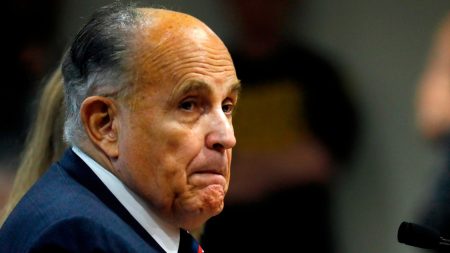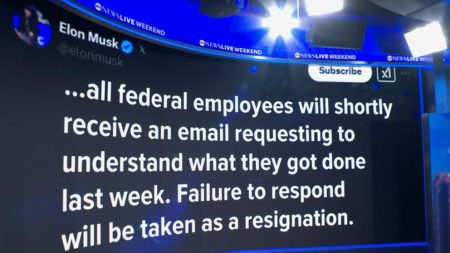The Fall of Elizabeth Holmes: A Cautionary Tale of Silicon Valley Ambition
The Appeal Denial: Elizabeth Holmes to Remain in Prison
Elizabeth Holmes, the former CEO and founder of the now-defunct biotech company Theranos, recently faced a significant setback in her legal battles. A federal appeals court in San Francisco denied her request to overturn her fraud conviction, ruling that she failed to provide sufficient evidence of legal errors during her trial. Holmes, who became a symbol of Silicon Valley’s culture of ambition and innovation, was found guilty of defrauding investors by making false claims about Theranos’ revolutionary blood-testing technology. The technology, which Holmes once claimed could detect numerous diseases from just a few drops of blood, never worked as promised. The court’s decision means Holmes will continue serving her 11-year prison sentence, which she began in May 2023. Her projected release date is March 19, 2032.
The appeals court also upheld the conviction of Ramesh “Sunny” Balwani, Holmes’ former business partner and romantic partner. Balwani, who was sentenced to nearly 13 years in prison, is expected to be released in 2033. Both Holmes and Balwani were ordered to pay $452 million in restitution to the investors they defrauded. Their legal team argued that the trial court had made errors, such as allowing certain testimonies and restricting others, but the three-judge panel rejected these claims. Judge Jacqueline Nguyen, in a 54-page ruling, stated that Holmes and Balwani failed to prove any significant violations or errors by the lower court.
The Vision and the Reality: How Theranos Captivated Silicon Valley
Elizabeth Holmes’ rise to fame in Silicon Valley was nothing short of meteoric. At just 19 years old, she dropped out of Stanford University to pursue her vision of revolutionizing the medical industry. Theranos, the company she founded, promised to transform healthcare with a portable device that could perform hundreds of lab tests using just a few drops of blood. This idea captivated the imagination of investors, media, and even some of the most respected figures in politics and technology.
Holmes’ charisma and persuasive abilities helped her secure nearly $1 billion in investments from high-profile individuals and families, including tech mogul Larry Ellison, media mogul Rupert Murdoch, and the Walton family of Walmart fame. Her board of directors was equally impressive, featuring names like former Defense Secretary James Mattis, former Secretary of State Henry Kissinger, and the late George Shultz, a former Secretary of State. These endorsements lent credibility to Theranos and helped Holmes build a reputation as a visionary leader, often compared to Apple’s Steve Jobs.
However, the reality behind the scenes was far from the image Holmes crafted. The technology she touted never worked as promised, and the company’s claims were largely based on deception. Employees who raised concerns about the effectiveness of the technology were often silenced or pushed out. The facade began to crumble in 2015 when a series of investigative articles by The Wall Street Journal exposed the flaws in Theranos’ technology and the company’s deceptive practices.
The Consequences: A Legacy of Betrayal and Deception
The unraveling of Theranos led to one of the most high-profile scandals in Silicon Valley’s history. The company’s collapse not only destroyed the reputations of Holmes and Balwani but also left investors with significant financial losses. The $452 million restitution order reflects the magnitude of the fraud. Holmes, now 41 and a mother of two young children, has seen her once-promising career reduced to a criminal conviction and a lengthy prison sentence.
Balwani, 59, is also serving time for his role in the scam. His sentence is slightly longer than Holmes’, and he is expected to remain behind bars until 2033. The pair’s downfall has been subject to intense public scrutiny, with their story being chronicled in books, documentaries, and even an award-winning TV series. The scandal has sparked debates about the culture of Silicon Valley, where the pressure to succeed often leads entrepreneurs to blur the lines between innovation and deception.
The Human Side: A Family Torn Apart by Ambition
While Holmes’ story is often portrayed as one of hubris and greed, there is a deeply human aspect to her downfall. A mother of two small children, Holmes is now separated from her family for over a decade. Her children will grow up without her during these formative years, a consequence that underscores the personal toll of her actions. Holmes’ legal team has not publicly commented on the appeal denial, but it is clear that the ruling adds finality to her situation. With her release date set for 2032, Holmes will have to come to terms with a life defined by both extraordinary ambition and catastrophic failure.
Balwani’s situation is equally dire. His relationship with Holmes was both personal and professional, and their partnership ultimately led to their shared downfall. The fact that both are serving lengthy prison sentences highlights the severity of their crimes and the impact of their deceit on countless individuals and families. The restitution order, while a step toward justice, cannot undo the harm caused by their actions.
The Broader Implications: A Cautionary Tale for Silicon Valley
The Theranos scandal has broader implications for Silicon Valley and the tech industry as a whole. Holmes’ rise and fall serve as a cautionary tale about the dangers of unchecked ambition and the consequences of prioritizing hype over substance. The case has raised questions about the ethical responsibility of startup founders and the need for greater accountability in the tech world.
Moreover, the involvement of high-profile figures on Theranos’ board has led to criticism of the culture of endorsements in Silicon Valley. While having well-known backers can lend credibility to a startup, it also raises questions about due diligence and the responsibility of those who associate themselves with such ventures. The scandal has prompted calls for greater transparency and oversight in the tech industry, particularly when it comes to companies that claim to be on the cutting edge of medical innovation.
Conclusion: The Enduring Legacy of a Fallen Icon
Elizabeth Holmes’ story is one of contrasts—on one hand, a brilliant entrepreneur who captured the imagination of the world; on the other, a convicted felon whose ambition turned into deception. The denial of her appeal marks the end of a long legal battle, but the impact of her actions will be felt for years to come. As the dust settles on the Theranos saga, it is clear that Holmes’ legacy is complex and multifaceted. While she once inspired countless young entrepreneurs, her story now serves as a reminder of the importance of integrity and the consequences of unchecked greed.
For Silicon Valley, the Theranos scandal is a wake-up call. It highlights the need for a culture that values truth and transparency over the relentless pursuit of success. As the tech industry continues to evolve, the lessons learned from Holmes’ downfall will remain relevant. In the end, the story of Elizabeth Holmes is not just about one woman’s rise and fall—it is about the power of ambition and the importance of staying true to one’s values in the face of overwhelming pressure.















